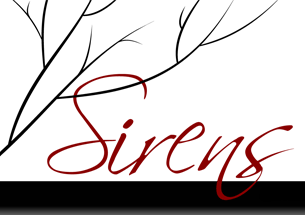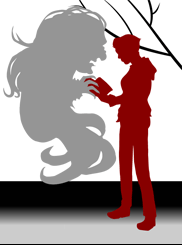
I just had the privilege of spending the weekend with some of the most amazing women I've ever met. It was Sirens Con 2014, a feminist SpecFic gathering of people from across the literary community, and even for someone like me who spends a lot of time exploring the book industry in general, there were a lot of eye-opening moments that changed not only how I see the feminist presence in SpecFic but also how I see myself fitting into it.
Every year Sirens features a specific theme to explore, and this year it was spirits and hauntings. Attention was focused on how feminism, and the female experience, was represented in writing that features women and ghosts or the ghosts of women, and how they are represented in the literary world. Three keynote speakers gave us three very different perspectives on the issue: Kendare Blake, Rosemary Clement, and Andrea Hairston. Kendare writes primarily in the horror genre, Rosemary is the author of YA Gothic stories of witches and ghosts, and Andrea is a playwright as well as a novelist who turns her focus toward the presence of ancestral spirits and how they connect the past and future. I strongly encourage everyone who reads this blog to check out their work, for their diverse perspectives as well as for their dynamic, spine-tingling writing skills.
In addition to three amazing authors who I haven't read before (but you can of course expect some reviews of their work to appear here shortly) I was able to connect with a wide variety of committed, amazing people from all over the literary community. Some attendees were writers and authors, but others were literary agents, publishing reps, bloggers, marketing experts, and other professionals who somehow intersect with the book world. The writers were in all stages of publication, from having their first book deals to searching for agents to just starting on their work, which was encouraging to me personally as someone who sometimes feels like I'm falling behind on what I really want to do full-time someday: write. Having a support network like that, and knowing that there are others out there around the country and the world working toward the same goals as you and helping to encourage you to make some headway, even just a page a day, is a powerful motivation and a true gift.
While it is true that there are some diverse female writers and characters in the genre, the other idea that I really brought home with me (aside from a truckload of inspiration) is that SpecFic as a whole is still woefully behind in representing people of different races, ethnicities, genders, sexual orientations, and creeds, both regarding minority authors and characters who come from more diverse backgrounds. Most of the authors who are making inroads regarding this discrepancy between the people around us and the people in books are women, but this important challenge remains: how to bring readers into contact with the works that will help to broaden their perspectives and the horizon of both SpecFic and writing in general.
After meeting so many amazing individuals and learning so much about the feminist movement in literature, SpecFic specifically, I'm both overwhelmed by the enormity of the challenge facing women and minority writers and inspired by the fact that there is a discussion going on about this, that there is a movement to help subvert writing that really doesn't represent the rainbow of humanity around us. I know that there are a lot of people who will disagree with the idea that women and minorities are still underrepresented in SpecFic (and literature as a whole). And that's great; dissenting opinions are what help to open the discussion. But I will point you toward the recent death threats made to female and minority gamers as a well-publicized example that within geekdom, literary as well as technological, we as humanity still have many ways in which we need to consider where we stand regarding equal representation.
I'm open to hearing other opinions about women in fantasy literature: Do you think we're accurately represented? What about minority characters or people with nontraditional genders and sexual orientations? How can we broaden our horizons in literature by encouraging diversity in readers, writers, and the rest of the literary community as a whole?

No comments:
Post a Comment